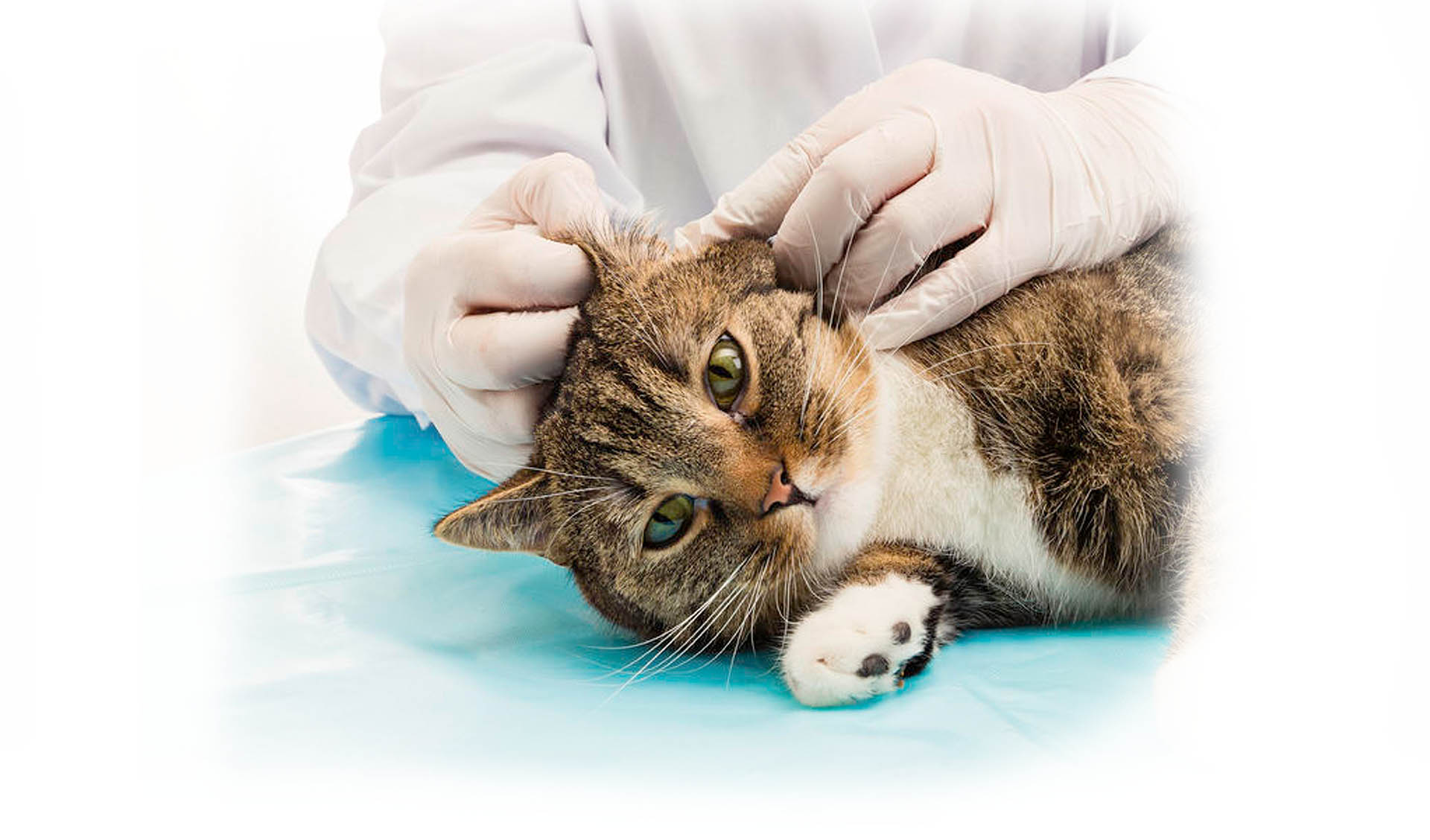If your cat or dog is often scratching their ears or shaking their head, they may have ear mites. These tiny parasites are prime suspects when a pet’s ears are itchy or there is hair loss around the ear area.
Mites are a member of the arachnid family and are related to spiders and scorpions. Unlike their more well-known relatives, the majority of mites are microscopic in size and can only be identified with a microscope. The most common type of ear mite is named Otodectes cynotis. This tiny, eight-legged parasite lives on the skin surface and feeds on the wax and oils in your pet’s ear canal, causing irritation and inflammation. Ear mites can infect both the external and internal ear canal, leading to more serious skin or ear infections if left untreated. Dark coffee ground-like debris is a telltale sign of infection and can lead to the ear canal becoming completely obstructed.
Ear mites are not species specific and can be transmitted between dogs and cats. Ear mites are most common in outdoor cats, are highly contagious, and are easily passed from pet to pet in everyday contact at home or outdoors.
General symptoms of ear mites include:
- Excessive scratching/rubbing of the ears
- Head shaking
- Black/brown material in the ears – dark coffee ground-like debris in severe cases
- Strong odor from the ears
- Inflammation and irritation in and around the ears
If ear mites are suspected, your veterinarian will take a sample of the ear debris and view it with a microscope to verify if any mites are present.
Ear mites are treated with products prescribed by your veterinarian. An anti-parasitic medication can be applied to the skin, which is absorbed and then secreted into the ear canals. A medication can also be applied directly into the ears. In severe cases, the ear medication may be paired with anti-inflammatory medications or antibiotics to help resolve infections. Ear cleaning is required prior to starting the treatment in order to remove any build-up of debris and maximize the efficacy of the treatment. To find out more about how to perform a good ear cleaning, please visit the following links: http://cahospital.ca/general/how-to-clean-your-dogs-ears/ and http://cahospital.ca/health-info/how-to-clean-your-cats-ears/.
Because ear mites are very contagious, all animals in the same household should be treated and their environment should be thoroughly cleaned.
Ear mites can be avoided by preventively treating them on a regular basis with a topical anti-parasitic medication. Please speak to the staff at Centrepointe Animal Hospital if you have any questions or if you think your pet could have ear mites!

